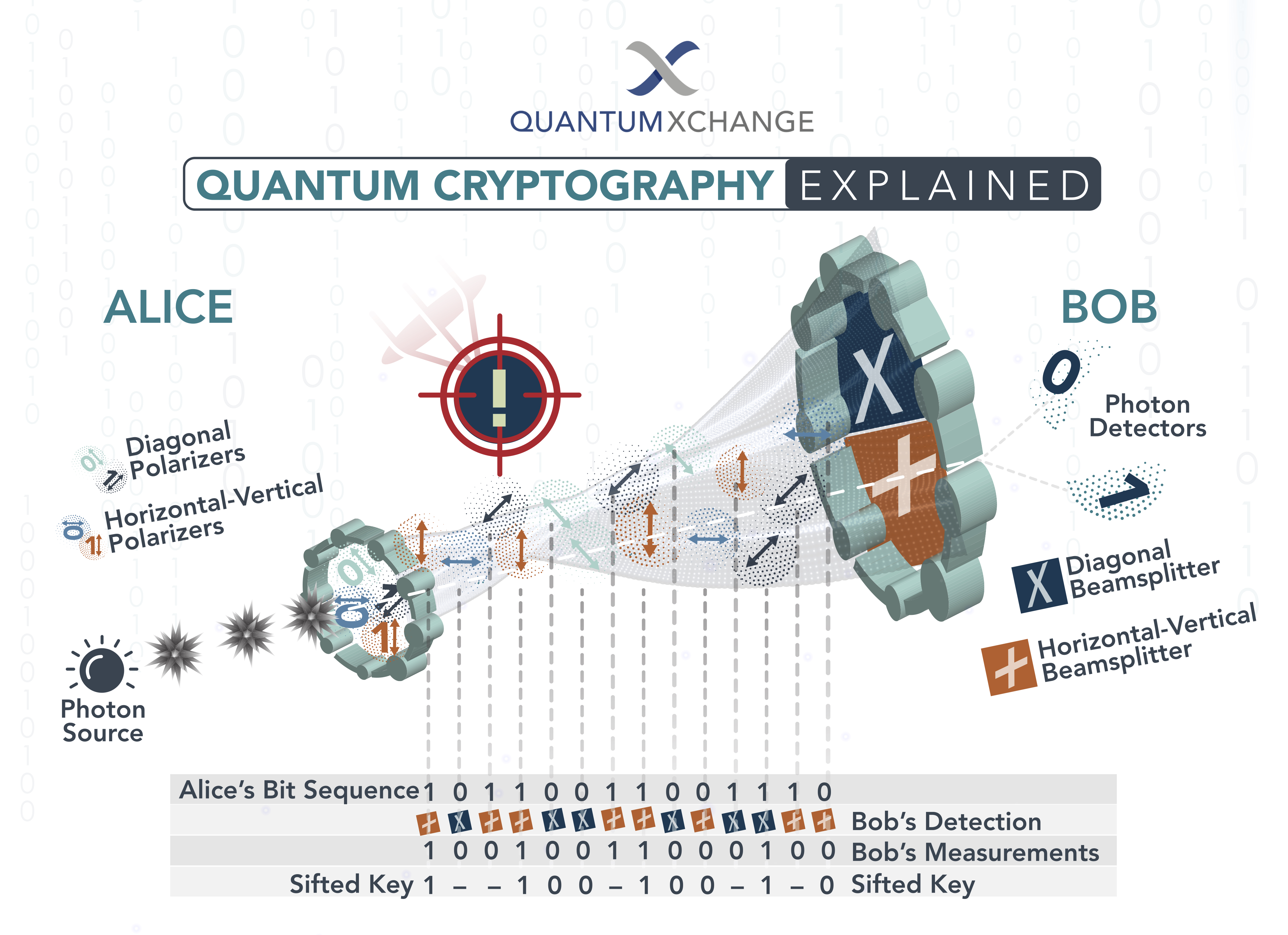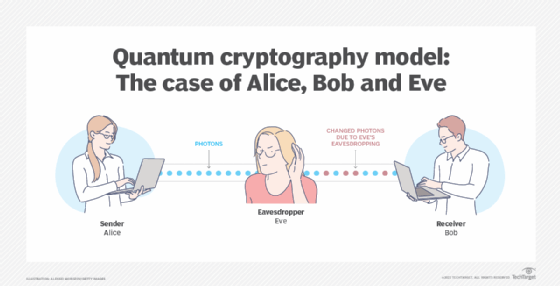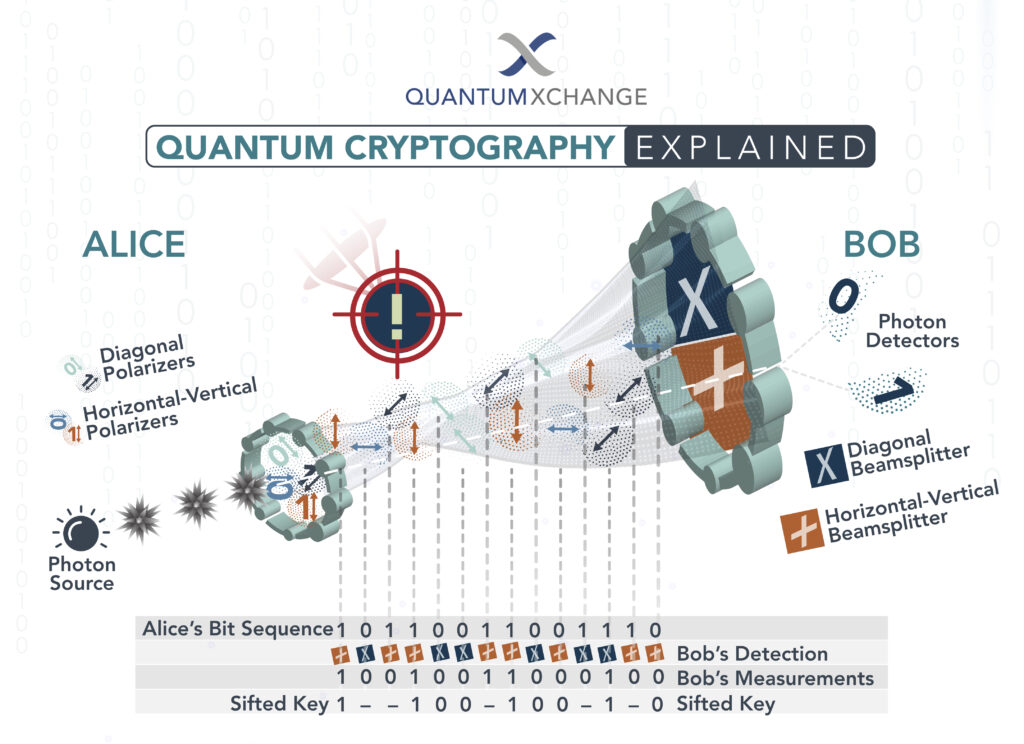As technology advances, traditional methods of cryptography are becoming increasingly vulnerable to cyberattacks. This has led to the development of quantum cryptography, a cutting-edge technology that promises to revolutionize the field of encryption. But what exactly does quantum cryptography do and how does it differ from traditional methods?
Quantum cryptography is a type of encryption that uses the principles of quantum mechanics to secure the transmission of information. Unlike traditional encryption methods that rely on mathematical algorithms, quantum cryptography uses the properties of photons to create a secure communication channel between two parties. By leveraging the properties of quantum mechanics, quantum cryptography is able to provide a level of security that is impossible to achieve with classical cryptography. In this article, we will explore the key concepts behind quantum cryptography and how it is changing the way we think about data security.
Quantum cryptography is a method of using quantum mechanical effects to perform cryptographic tasks. It enables two parties to produce a shared random secret key known only to them, which can then be used to encrypt and decrypt messages. It is a technique that offers an advantage over traditional cryptographic methods, as it is impossible to eavesdrop on the communication without being detected.
Quantum cryptography is used to protect communication channels from eavesdropping, as it is based on the laws of quantum mechanics that make it impossible to intercept the encrypted data without the receiver being aware. It is also used to securely exchange keys for secure communication, as it is impossible for a third party to learn the key without being detected.

What is Quantum Cryptography?
Quantum cryptography is a form of encryption that takes advantage of the principles of quantum mechanics to provide secure communication. It involves the use of quantum states to encode and transmit data, making it virtually impossible to crack. Quantum cryptography is considered to be one of the most secure forms of encryption available.
Quantum cryptography is a relatively new form of encryption technology. It was first proposed in the late 1980s and has since been developed and refined by many researchers. Quantum cryptography is based on the principle of entanglement, which states that two particles can be linked together in such a way that a change in one will result in a corresponding change in the other.
What Does Quantum Cryptography Do?
Encryption
Quantum cryptography uses the principles of quantum mechanics to protect data. By using different quantum states to store and transmit data, it is almost impossible to break the encryption. This makes it one of the most secure forms of encryption available.
The main advantage of quantum cryptography is that it is virtually impossible to hack. Unlike traditional encryption methods, quantum cryptography does not rely on a “key” that can be guessed or cracked. Instead, it uses the principles of quantum mechanics to ensure that data is secure.
Authentication
In addition to encryption, quantum cryptography can be used to verify the identity of the sender and receiver of a message. This is known as authentication and is an important part of secure communication. By using quantum cryptography, it is possible to verify the identities of both parties and ensure that the communication is secure.
Quantum cryptography can also be used to detect if a message has been tampered with. This is done by using a process known as quantum entanglement. If a message is altered, it will change the quantum state of the particles used to encode it. This change can be detected and the message can be rejected or flagged as suspicious.
Frequently Asked Questions About Quantum Cryptography
Quantum cryptography is an emerging technology that utilizes the principles of quantum mechanics to secure data and communications. It is seen as a breakthrough in cyber security, as it promises stronger encryption and unbreakable communication links.
What Does Quantum Cryptography Do?
Quantum cryptography is a form of data encryption that utilizes the principles of quantum mechanics to protect information. It is seen as a major breakthrough in cyber security because it is unbreakable and can provide stronger encryption than other traditional forms of data encryption. Quantum cryptography works by encoding data with a quantum key, which is a string of random numbers. This key is then sent over a communications channel, where it is received by the intended recipient. If any third-party attempts to intercept the data, the quantum key will be altered, alerting the sender and receiver that the data has been compromised.
Another use of quantum cryptography is to create unbreakable communication links. This is done by using a pair of entangled particles, which are connected and can affect each other, even if they are separated by a great distance. This type of link is secure because any attempt to intercept the data would cause the particles to become unentangled, alerting both parties that the connection has been tampered with.
What Are the Advantages of Quantum Cryptography?
One of the biggest advantages of quantum cryptography is that it provides an unbreakable form of data encryption. This is because the quantum key is extremely difficult to replicate, making it impossible for a third-party to decipher the data. Additionally, any attempt to tamper with the data will be detected, alerting both the sender and recipient that the data has been compromised.
Another advantage of quantum cryptography is that it offers improved security for communication links. As mentioned, this is because it utilizes a pair of entangled particles, which can alert both parties if the connection has been tampered with. This means that the data being sent is secure, as any attempt to intercept the data will be detected.
What Are the Disadvantages of Quantum Cryptography?
One of the main disadvantages of quantum cryptography is that it is still in its early stages of development. This means that it is not widely available and is still relatively expensive. Additionally, it requires specialized hardware and software to use, which can make it difficult to implement.
Another disadvantage of quantum cryptography is that the quantum key must be shared between the sender and receiver. This means that the key must be physically transported, which can be difficult and time-consuming. Additionally, if the quantum key is lost or stolen, the data encrypted with it can no longer be decrypted.
What Are the Applications of Quantum Cryptography?
Quantum cryptography has a wide range of applications, from data encryption to secure communication links. It can be used to protect sensitive data, such as financial information or confidential documents. It can also be used to create secure communication links between two parties, such as a company and its customers. Additionally, quantum cryptography can be used for authentication purposes, such as to verify the identity of a user.
Finally, quantum cryptography can be used to ensure secure online transactions. By using a quantum key, transactions can be made secure and unbreakable, offering peace of mind to both the seller and buyer.
Is Quantum Cryptography Secure?
Yes, quantum cryptography is highly secure. As mentioned, it utilizes a quantum key, which is impossible to replicate and any attempt to intercept the data will be detected. Additionally, the use of entangled particles makes communication links secure and unbreakable. This makes quantum cryptography one of the most secure forms of data encryption and communication available.

In conclusion, quantum cryptography is a cutting-edge technology that has revolutionized the field of cryptography. It uses the principles of quantum mechanics to secure communication channels against eavesdropping and hacking attempts. Quantum cryptography ensures that data and information shared between two parties remain secure and tamper-proof, making it an essential tool for governments, military organizations, and businesses.
As technology continues to advance, the need for secure communication channels becomes increasingly important. Quantum cryptography offers a promising solution to these security challenges, providing a new level of security that is virtually impossible to break. With the ongoing research and development in this field, we can expect to see even more innovative applications of this technology in the future. Quantum cryptography is a powerful tool that has the potential to transform the way we communicate and keep our data safe.

